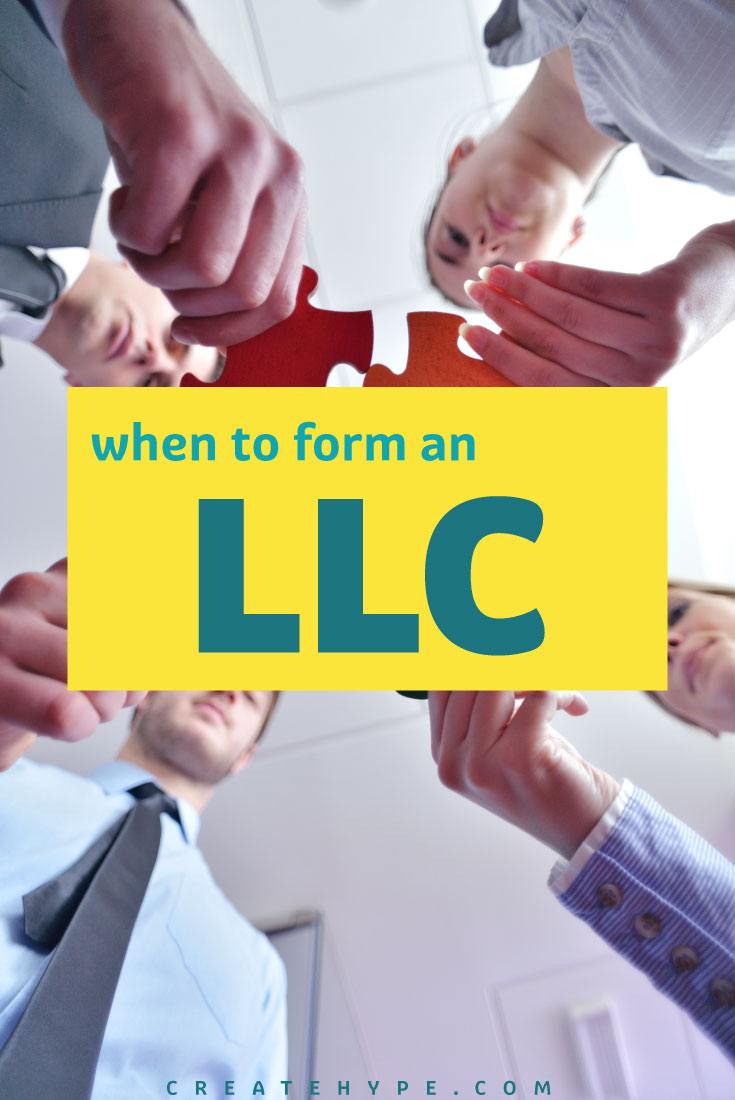I frequently work with people in the initial stages of starting a new business. Choice of legal entity is one of the first and most-important decisions made at this point, so it is worth careful consideration.
Entrepreneurs commonly ask me if they should establish a Limited Liability Company (LLC). LLCs are a popular way of establishing a new business, but they are not the only or, often, the best choice.
First, some definitions:
Sole Proprietor – a business owned and operated by an individual
Sole Proprietorship is the default classification for anyone who is earning money on their own (rather than as an employee of someone else). This is business at its simplest form.
While you will not have to file anything with the Federal government to operate as a sole proprietor, your local jurisdiction may require you obtain a business license. Check with your city’s business office.
Additionally, if you operate as anything other than your legal name (e.g., calling your business “Party Plus” rather than “Ann Jones”), you will need to obtain a “doing business as” license. This is also known as a “DBA” or “fictitious business license”. Each jurisdiction has different requirements for obtaining this license, so be sure to do your research.
A drawback to being a sole proprietor is that there is no distinction between you and your business. If you are sued in the course of your operations, you stand to lose your personal as well as business assets. This is one of the key reasons entrepreneurs look into other business structures.
LLC – a hybrid business structure that combines features of the corporation and partnership
The most popular feature of the LLC is the personal protection from business liabilities. With an LLC in place, a lawsuit may still be able to clean out your business assets but likely won’t cost you your family home.
Many entrepreneurs form single-member LLCs. This means that they are the only owner – they do not have a partner. In this case, income earned by the LLC (business profits) are reported on the member’s Schedule C and filed with the annual tax return.
If you are looking to form an LLC with more than one member, I cannot stress enough the importance of talking with a lawyer to draw up an operating agreement. While few people go into business with a friend anticipating things going awry, strong legal agreements set in place before things go sour can be indispensable. This agreement will also determine how items of income and expense pass through to each partner to be claimed on that partner’s personal tax return for the year.
LLCs are regulated by the State rather than the Federal government, so requirements – and fees! – vary depending on where you live.
What to choose
Clients sometimes come to me thinking that forming an LLC is a must. While making your business an LLC is generally not a wrong idea, it’s not always the best idea.
If your key concern is personal liability for business issues, consider business insurance. Depending on where you live, it could be cheaper than filing LLC paperwork. Additionally, take time to consider how litigious your industry is. Look at your key competitors to see how they’ve structured their business.
Keep in mind that you have more than two options. While S-Corporations are less common among entrepreneurs, they offer certain tax benefits for profitable businesses.
Finally, establishing an LLC (or S-Corp) does not have to be done in the first year. You and your tax adviser can always re-evaluate as your personal or business situations change. It’s not uncommon to operate as a sole proprietor for the first couple years before adopting a business structure for tax planning reasons once profits are noteworthy.



Thank you!! Nobody told me before that you can start as a Sole Proprietorship and when it’s convenient change to LLC. It’s amazing how we can ever find new information about old subjects.
LLC is only a state-level business liability protection designation, there is no federal taxable entity known as an LLC, you’re either a sole prop, partnership, or (S/C)corporation.
I read (on the internet) somewhere about a year ago that one cannot transfer from Sole Prop. to an LLC? I’ve spent quite sometime pondering what I should do. I just did a bit more research and it is possible! It’s good to know this is possible, as I am starting out relatively small. Thanks for your continued help!!
I am trying to start a service for children. I will not have any income from it. I cannot afford to become a non profit at this time.
Should I become a LLC?